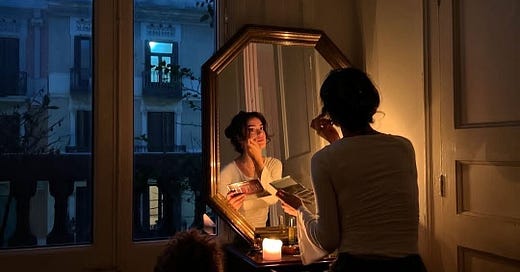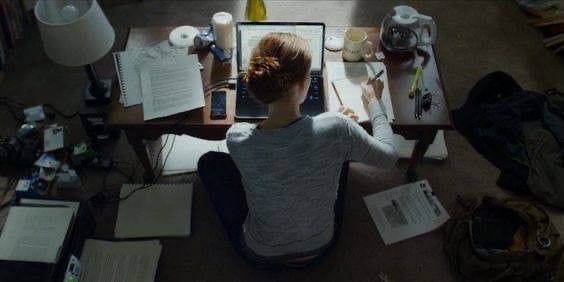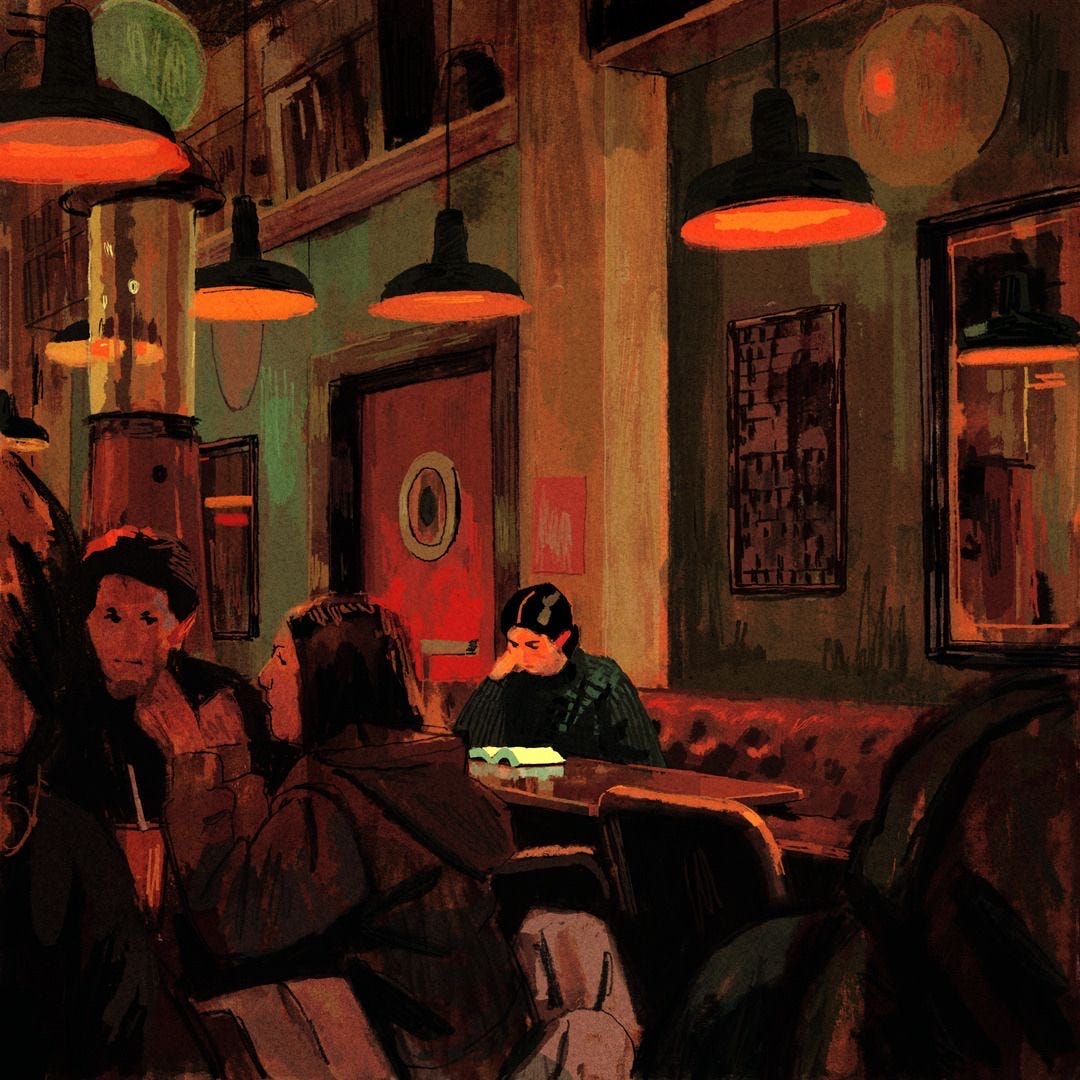there’s a strange ache that comes with outgrowing a version of your life that you worked hard to create. it’s the kind of feeling that doesn’t announce itself as grief but hums in the background of your daily routine — in the moments when the things that used to feel important start to feel hollow, when your goals no longer excite you, when you’re not quite burnt out but can’t seem to care either. it’s not depression, not exactly. it’s disorientation. and for many people, especially in their mid- to late-twenties or early thirties, it’s the quiet emotional truth behind the phrase “i feel lost.” but what if being lost isn’t a failure to find yourself — what if it’s the beginning of finally doing it right?
we are raised in cultures that love clarity. clarity is productive. clarity is bankable. clarity can be monetized and measured and turned into content. it makes you easier to explain at dinner parties. it makes your existence easier to post. and when clarity disappears — when the relationship doesn’t fit anymore, when the job makes your chest feel tight, when the apartment you manifested starts to feel like a set — we panic. we look for a new label, a new goal, a new structure to stabilize us. but sometimes the most important thing we can do is let ourselves stay blurry. to be unbranded, unpositioned, undone for a while. because real self-knowledge is a slow, unmarketable process. and the lost feeling might just be the first sign that you’ve finally stopped performing someone else’s idea of a good life.
this is especially true for people who are used to being “the responsible one.” people who built their identities around competence, or ambition, or being the one who keeps it all together. high-functioning adults who never had the luxury of falling apart because there was always someone else depending on them. for us, feeling lost can feel like weakness. like we’re failing at something we used to be good at. but in developmental psychology, this exact period has a name: “moratorium.” it refers to a necessary identity pause — a period of reevaluation that comes after you’ve foreclosed too early on a fixed identity. according to erik erikson, it’s part of a healthy adult cycle. not a breakdown. not a malfunction. a reset. a chance to ask better questions.
what would i choose if i wasn’t trying to impress anyone?
what would my life look like if i wasn’t addicted to clarity?
what kind of person am i becoming — and do i like her?
culturally, we’re not given permission to ask these questions unless we’re in a crisis. but they often show up subtly: in your aversion to a schedule you used to love, in your inability to finish books, in your boredom with your own narrative. the timeline doesn’t make sense anymore, and the metrics of success start to feel like someone else’s homework. you begin to want things you don’t know how to name yet. and when you try to explain it to people, they worry. they tell you to find something stable, to go back to what works, to stop overthinking it. but the truth is, you’ve outgrown the person who fit neatly into that older life. and this loss of identity isn’t the problem — it’s the path.
the irony is that most of our heroes went through this exact liminal space. joan didion, in her early thirties, took a leave from her magazine job to figure out what she really believed. toni morrison didn’t publish her first novel until age 39. greta gerwig started writing and directing after a long stretch of feeling “off-purpose” in her acting career. even emma chamberlain has spoken about having to disconnect from everything she built in order to figure out who she really was. the point isn’t that reinvention is glamorous. it’s that the people we admire most often had to lose themselves first.
and yet, we’re terrified of being directionless. we pathologize stillness. we treat confusion like a flaw in the system instead of a sign that the system no longer fits. especially in wellness culture — where even healing becomes a brand strategy. you’re expected to optimize your nervous system, journal your limiting beliefs, and manifest your next season, all while looking like you’ve figured it out. but what if you haven’t? what if you don’t want to manifest anything just yet? what if you’re exhausted by the idea of becoming? what if you just want to be?
being lost is the body’s way of saying: wait. before we climb another ladder, can we check where it’s leaning? can we stop and ask if this was ever mine? maybe you used to dream of a corporate job and now fantasize about slowness. maybe you built a business and now want to burn it all down and take a gap year in your own life. maybe you’re the kind of person who can make anything work — and that’s precisely why everything feels like a trap. this isn’t dysfunction. this is discernment.
i’ve seen it in friends who left law to become therapists. in creatives who stopped posting on social media because their art became algorithmic. in mothers who cried because the role they waited their whole lives for didn’t make them feel like themselves. i’ve felt it in myself — that sense of something quietly collapsing even while the world claps for your success. it’s not that we don’t know who we are. it’s that we’re finally brave enough to question the versions of us that were designed to survive, not to thrive.
and if you’re reading this in the thick of it or if your mornings feel like molasses and your thoughts don’t organize into clean bullet points and your future feels like a smudged watercolor — please don’t rush to fix it. please don’t bypass this with a pinterest quote or a productivity hack. sit in it. trust it. let yourself be slow. make a cup of tea and stare out the window for as long as it takes. listen to the part of you that’s whispering “this isn’t it anymore.” it’s not drama. it’s data.
because one day, not all at once, but gently — the fog lifts. you wake up and realize you want to paint again. or journal. or move cities. or stop performing certainty. and slowly, a new kind of clarity emerges. not the kind that’s marketable or impressive. the kind that’s rooted. quiet. yours. you stop measuring your worth by momentum. you start finding joy in the mundane. you fall in love with your actual life, not the one you perform. and maybe — just maybe — you begin to see that feeling lost was never the enemy. it was the invitation.









I’m stumped. How and when did you enter my mind and read it? 😂 Transformation can be lonely. This made me feel less so today. 😊
This was just what I needed today. Tomorrow. Whatever stage of life we're in, these moments will come. Thank you for sharing this.